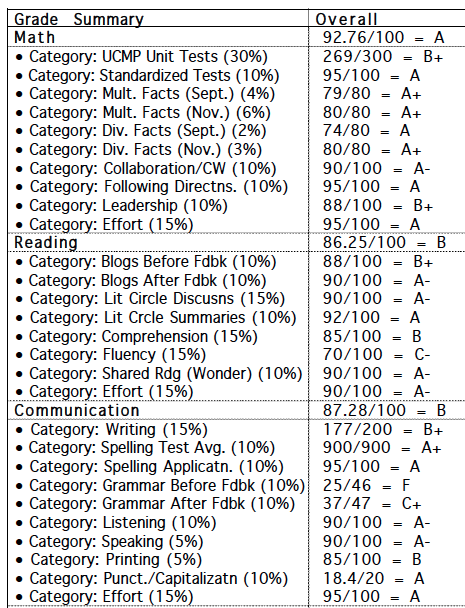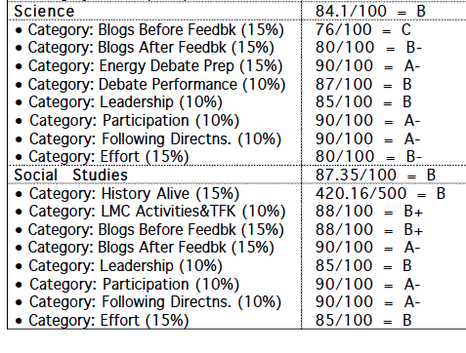| How does our student-led, collaborative classroom allow you to be yourself more than a traditional classroom might? | Instead of doing reading response journals, we do discussion videos. What are the benefits of these videos and should other teachers use a similar method? |
| Why do we assign random partners instead of letting students choose their own partners? Is this good or bad? | Primary (K-2) teachers have a different situation than us. What advice can you give these teachers for creating a student-led classroom? |
| What can teachers do if they are expected to teach a scripted program or if they have more strict rules about how and what they teach? | How do we use ePortfolios in our classroom? What are some reasons other teachers should consider using them in their classroom? |
| What might the student-led classroom look like in 10 years? Will it become completely student-led or is there a maximum? | Which aspect of our student-led classroom do you like the best? Why? |
| How should teachers start the year, so everyone is successful in a student-led classroom? | How can teachers explain what a student-led classroom is to parents so they have confidence & faith in it? |
| Some kids think they're perfect or really smart. How can teachers get these students to have a growth mindset and that we all have strengths and weaknesses? | How can music teachers make their class more student-led? |
| How can art teachers make their class more student-led? | How can P.E. teachers make their class more student-led? |
| What routines or rituals have changed over time? Why have they changed? | Do kids ever get used to the noise of productive work in the classroom? Or does it distract you all year long? |
| How can teachers teach students to have a growth mindset and be OK with setbacks along the way? How can teachers step back and let students figure things out instead of always being told? | Some teachers are reluctant to give power and control to students. What advice can you give teachers regarding giving power and control? |
| Did any of YOU have a negative reaction to our student-led classroom and how did you overcome it? (Interesting comment on report card grades & slacking) | How might you have grown more this year than you might have in a traditional classroom? |
| If a teacher was interested in creating a student-led classroom, but wasn't ready to go "all in," what advice would you give them to start slowly? | How do we prevent tattling, bickering, bossiness, and some students trying to look better than their peers? |
| Why do students work hard when there aren't grades? How does Mr. Solarz motivate you to work hard (or does he)? (respect, responsibility, authentic audience, intrinsic motivation...) | How does Mr. Solarz get students to improve their 21st Century skills without grades & how do they convince themselves to work hard on them? |


 RSS Feed
RSS Feed
